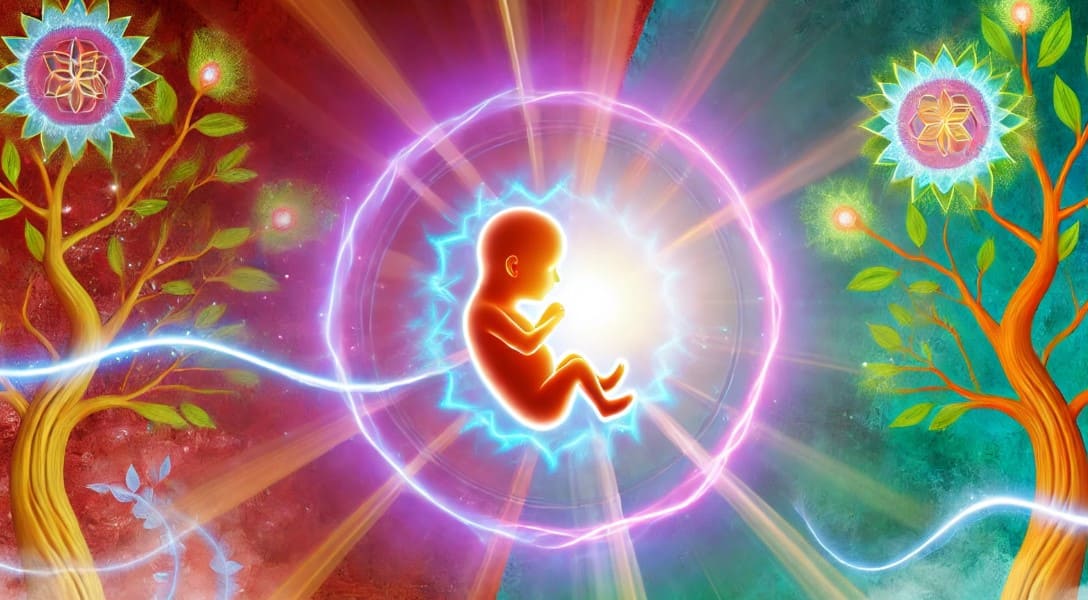Transfers made for the benefit of unborn persons are provided in the Transfer of Property Act, 1882 (referred to as ‘Act’)[1]. This section deals with the transfer of immovable property to an unborn child.
Table of Contents
Section 13
Transfer for the benefit of the unborn person. – “Where, on a transfer of property, an interest therein is created for the benefit of a person not in existence at the date of transfer, subject to a prior interest created by the same transfer, the interest created for the benefit of such person shall not take effect, unless it extends to the whole of the remaining interest of the transferor in the property.”
Unborn Person
An unborn child/ person will come into existence in future but non-existing presently. A child in a mother’s womb is defined as an unborn person under the Act. A transfer made to an unborn child who is not born by the time the life interest of the trustee expires, such transfer is invalid and the property’s interest vest back to the original owner or the transferor. Section 13, legitimises transfers to an unborn child.
Applicability
Section 13 of the Act applies to Hindus, which makes the transfer of property to an unborn child valid. However, the section does not apply to Muslims, as the Act itself states under section 2 that it will not have any effect on Mohammedan Law, making transfers to unborn children void.
Till the time the unborn child has not taken birth, the property after it is transferred in the unborn child’s name, the rights of such property stay with the Trustees/Parents of that child. The condition that is must for such transfer is that it must be made for the benefit of the child.
English Law is now governed by ‘Rule against Perpetuities’ as per section 163 of the Law of Property Act, 1925[2]. Earlier, under English Law, ‘Life Interest’ could also be created as per the rule against double possibilities. This rule made the transfer of life interest of a property to one unborn child and later absolute interest of that property to another unborn child.
A provision in the Indian Succession Act, of 1925[3], deals with transfers that occur after the death of the testator. This section is controlled by section 13 of the Transfer of Property Act. These two sections must be read together in case, where the testator is leaving behind the property in the name of an unborn person.
In Sopher v. Administrator General of Bengal[4], the property of the testator was to be divided among his wife and children, living at the time of his death. The life interest on the property was created in the children’s and the wife’s name. Absolute interest in the property was made in the name of grand-children once they had attained the age of majority. As held by Privy Council the interest held in the name of grand-children was held to be void. As per section 113 of the Indian Succession Act, 1 of 925, in this case, there was a possibility of the interest being defied. The life interest created in the name of wife and children was contingent and could have changed the original form once the interest was transferred to the ggrandchildren
Transfer of Interests
For the transfer of property for the benefit of an unborn person to be valid, the interests must also be transferred. Absolute interests are transferred to the unborn child and life interests trare ansferred to a living person on the date such transfer occurs. Once the child is born, the title of the property transferred goes to him/ her. But the possession gets transferred only after the death of the person on whom the life interests of such property were vested.
The property cannot be transferred directly to the unborn child without being transferred in the name of the Trustee. It has to be transferred first in the name of a living person, then later when the child is born in his/her name the interests get transferred. Only ‘Absolute Interest’ is created in the name of an unborn person and not ‘Life Interest’.
If the unborn person doesn’t come into existence, and the trustee has the life interest, then the interest on the property vests back to the transferor or his heirs. The interest cannot stay in abeyance. The interest of the property needs to be in the name of a living person at any pointinf time.
Interest in life can be vested in more than one person successively, but absolute interest must be vested in one unborn person only. In any case, life interest cannot be vested in an unborn person to be subsequently transferred as an absolute interest to another unborn child, as per section 13.
Nature, Concept and Theories of Intellectual Property Rights
In the case of Framroz Dadabhoy v. Tahmina[5], it was held by the Bombay HC that ‘extends to the whole of the remaining interest of the transferor in the property’ in section 13, extends to the absolute nature of the property.
The interest of the property must vest absolutely with the unborn child once it is born. Though the possession can be transferred later. The transfer is only valid when it is made for the benefit of the unborn child.

In Issac Nissim Silas v. Official Trustee of Bengal[6], the interest was created such that life interest was in the name of the person, upon his death life interest will vest with his sons and then later on absolute interest in the name of the grand-children. The transfer in the name of unborn children was held to be invalid.
Section 15
Transfer to class- “If on a transfer of property, an interest therein is created for the benefit of a class of persons about some of whom such interest fails because of any of the rules contained in sections 13 and 14, such interest fails regarding those persons only and not regarding the whole class.”
Transfer of property can be made in the name of a single unborn child or class of such persons. The condition required is that it must be made in compliance with sections 13 and 14 of the Act. If the interest in some persons fails because of contingency, even then it stays valid for the rest of the persons.
Conditions to be fulfilled
Transfer of property in favour of the unborn person is valid when these conditions are met-
- An interest must be created in the unborn child’s favour, for his/her benefit.
- The transfer must be made through a trustee; it cannot be made directly to the unborn child. That is prior interest to a living person and then subsequently to the unborn child.
- That interest must be Absolute and not Life interest.
- The unborn person must exist in the womb or be conceived, during the expiration of the Life Interest of the Trustee and must come out in existence before the Trustee dies or his life interest expires.
- Vesting Absolute Interest to the child can be postponed till he/she reaches majority, this cannot be postponed further.
Vested Interest
The rights of the property get vested with the child once he/she is born. They cannot take possession nor enjoy the entitlement unless the life interest expires or the contract specifically mentions it. Section 20 of the Act describes the conditions in which vested interest gets acquired by the unborn person.
Section 20
When an unborn person acquires vested interest on transfer for his benefit- “Where, on a transfer of property, an interest therein is created for the benefit of a person not then living, he acquires upon his birth, unless a contrary intention appears from the terms of the transfer, a vested interest, although he may not be entitled to the enjoyment thereof immediately on his birth.”
Section 14
Rule Against Perpetuity– “No transfer of property can operate to create an interest which is to take effect after the lifetime of one or more persons living at the date of such transfer, and the minority of some person who shall be in existence at the expiration of that period, and to whom, if he attains full age, the interest created is to belong.”
Rule Against Perpetuity
After an interest is created in the favour of an unborn child, the interests cannot be postponed beyond the life interest of the trustee and the minority of the child. The property needs to be vested with him/ her before reaching the age of 18.
The interest of any property cannot be made for an indefinite period. This creation of remote interest in a property is void as per section 14 of the Act. The transfers included under these sections are the ones where interest is made in the name of upcoming generations or unborn persons, where there is a contingency of their birth. The unborn person must come into existence during the life of the trustee holding the life interest.
What are the Best Online Shopping Hacks?
Conclusion
Transfer of immovable property under section 13 of the Transfer of Property Act, 1882 to an unborn person is valid. The transfer cannot be executed directly, the interest on the property needs to vest in an existing living person, and then subsequently transferred to the unborn person upon their existence. Only Absolute interest can vest with an unborn child. Life Interest made in the favour of an unborn child is void.
Interest must be created after the unborn child is conceived, based on the certainty that the child will exist in future. The interest created in the favour of an unborn person whose birth is only based on probabilities is void.
REFERENCES
[1] The Transfer of Property Act, 1882,s.13.
[2] The Law of Property Act, 1925 (UK).
[3] The Indian Succession Act, 1925,s.113.
[4] AIR 1944 PC 67.
[5] AIR 1948 Bom 188.
[6] AIR 1957 Cal 118

